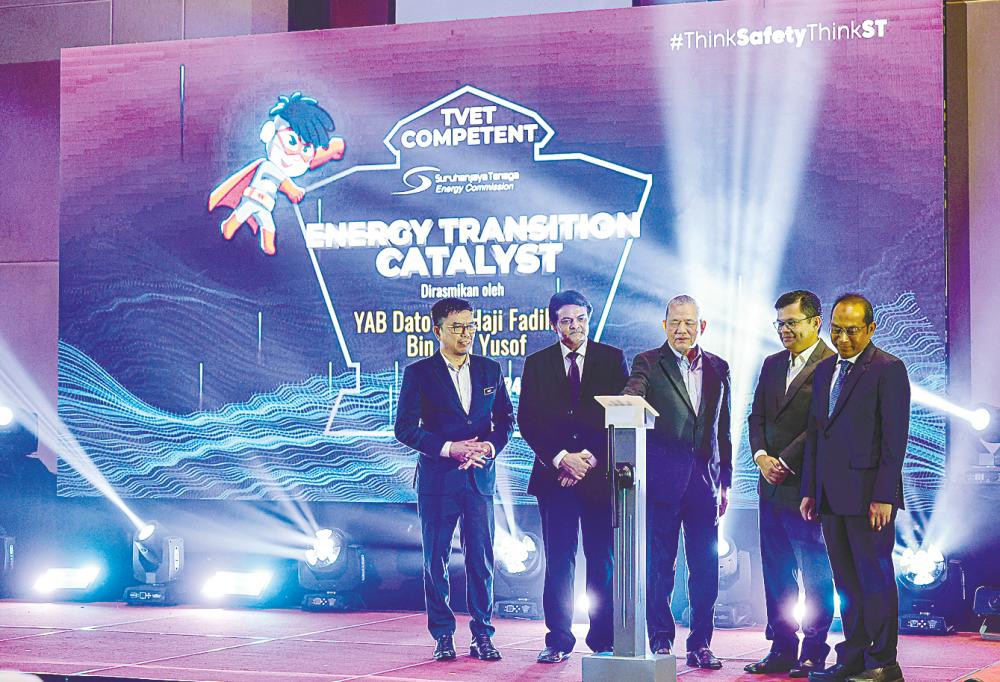PUTRAJAYA: Based on projected advancements in energy transition technology, Malaysia needs 62,000 skilled workers to achieve the goal of generating up to 70% or 56 gigawatts of renewable energy by 2050, said Deputy Prime Minister and Minister of Energy Transition and Water Transformation Datuk Seri Fadillah Yusof.
He said that this is a continuous process and new competent workers for the energy sector will be produced each year.
“The deputy minister will be tasked with focusing on these training programmes. They will go to every corner, especially in the peninsula, to attract more young people to get involved in these fields (gas and energy),” Fadillah told reporters at after the launch of TVET Competent EC – Energy Transition Catalyst today.
He said that achieving the goals of the Net Energy Transition Roadmap requires not only investors but also skilled workers to implement the energy transition goal effectively.
“If we don’t have knowledgeable and skilled workers in these technical fields, we will not be able to achieve this, including the wireman installing solar panels on rooftops, the chargeman for installing cables, and so on. We need skilled workers,” he said.
Fadillah said that unlike the construction sector, where he was previously involved in, specialised fields such as energy and gas offer higher salaries due to the need for specific expertise.
“TVET, especially in the energy and gas fields, is specialised, and because it is specialised, their salaries are better than in other sectors. They can’t get a job if they are not competent. This is different from a general plumber.
He added, “The demand in the market is quite high.”
A memorandum of understanding between the Energy Commission and the Energy Commission of Sabah (ECoS) was signed during the event, aiming to harmonise governance and regulation concerning competencies, electrical equipment and gas between the federal and state governments.
“In Malaysia, we have three energy authorities: the Energy Commission in Peninsular Malaysia, ECoS and Sarawak Energy Sdn Bhd.
“We want to ensure there is cooperation between the federal level in Peninsular Malaysia and Sabah and Sarawak so that it can be harmonised. It’s not just about standardisation, but the whole competency process should be unified; it shouldn’t be different in Sarawak, Sabah and Peninsular Malaysia,” he said.
The Energy Commission organised the TVET Competent ST event as part of its initiative to strengthen technical and vocational education and training programmes in the country, particularly activities related to electrical and gas pipeline competencies.
As of August, a total of 140 institutions across Malaysia have been accredited to conduct electrical and gas pipeline competency courses.
The event also aims to build professional relationships between regulatory agencies and institutions, and to reinforce the platform for continuous education in line with green technology advancements and government directions.









